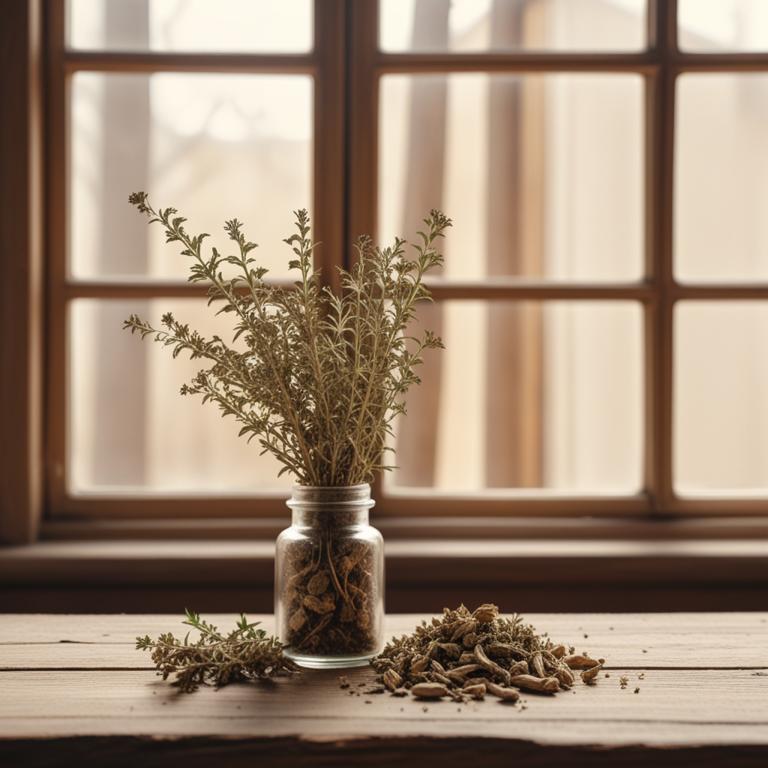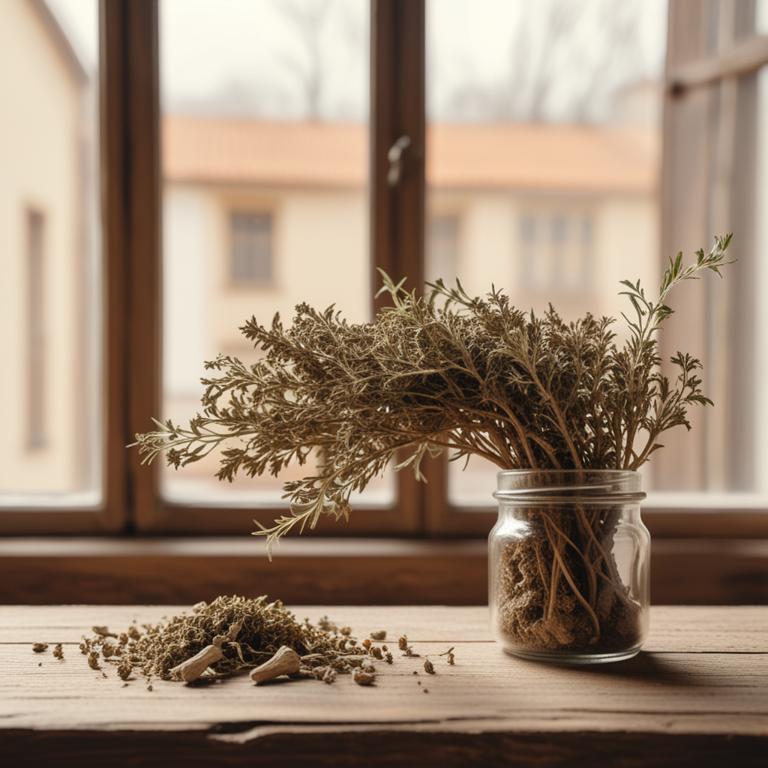Updated: Dec 1, 2024
Osteoporosis: Exploring Causes, Medicinal Herbs, and Herbal Preparations
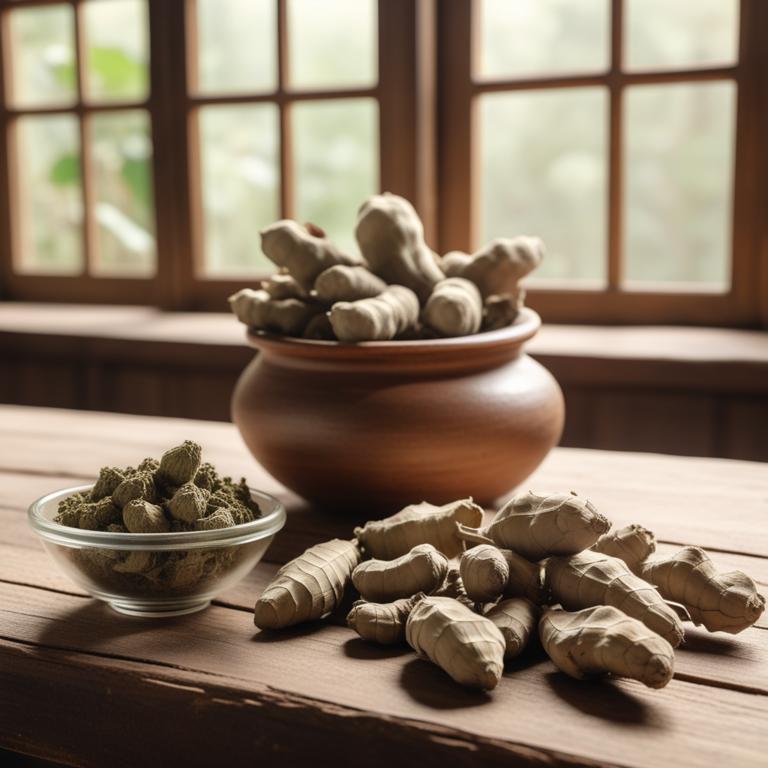
Osteoporosis is a condition where the bones become weak and brittle, making them more likely to break.
It can cause pain, disability, and even death. People with osteoporosis may experience back pain, hunched shoulders, and difficulty walking. Osteoporosis is often caused by a combination of factors, including a lack of calcium and vitamin D, hormonal changes, and family history. When our bodies don't get enough calcium and vitamin D, they can't build strong bones. This is especially true for women after menopause, when hormone levels drop.
Other factors like smoking, excessive caffeine and alcohol consumption, and a diet lacking in essential nutrients can also contribute to osteoporosis. Herbal remedies, such as those containing calcium, magnesium, and vitamin D, can help strengthen bones. Herbs like alfalfa, dandelion, and nettle leaf are rich in minerals and can be consumed as teas, capsules, or added to foods. Some herbal teas, like those made from oat straw and red clover, contain silicon, which is essential for bone health. These herbs can be prepared as teas by steeping them in hot water, or taken as supplements in capsule or powder form.
Some people also add herbal extracts to their food or drinks.
Table of Contents
What triggers the development of osteoporosis?
The main causes of osteoporosis are a combination of factors that can weaken bones over time.
Hormonal Imbalance is a major contributor, particularly in women after menopause. This is because the decrease in estrogen levels can slow down bone growth and increase bone loss. Another crucial factor is Vitamin D Deficiency, which is essential for the absorption of calcium in the body. Without enough vitamin D, bones can become brittle and weak.
Calcium Deficiency is also a significant cause, as calcium is a primary component of bone tissue. If the body doesn't have enough calcium, bones can become thin and fragile. Genetic Predisposition is another factor that can increase the risk of osteoporosis. People with a family history of the condition are more likely to develop it.
Finally, Smoking is also a risk factor, as it can slow down bone growth and increase bone loss, making bones more susceptible to fractures.
What are the advantages of using herbs to treat osteoporosis?
Using herbs for osteoporosis can have several benefits.
They can help increase bone density, which is essential for reducing the risk of fractures. Some herbs may also help slow down the bone loss process, which occurs when osteoporosis is left untreated. This can be especially helpful for people who have already started to lose bone mass.
Additionally, certain herbs may have anti-inflammatory properties, which can help reduce pain and discomfort associated with osteoporosis. Some herbs may also help improve calcium absorption, which is essential for maintaining strong bones. Furthermore, using herbs may be a more natural and safer alternative to pharmaceuticals, reducing the risk of side effects and interactions with other medications.
However, it's essential to note that individual results may vary, and people should consult with a healthcare professional before adding any new supplements to their regimen.
What medicinal herbs are most effective for osteoporosis?
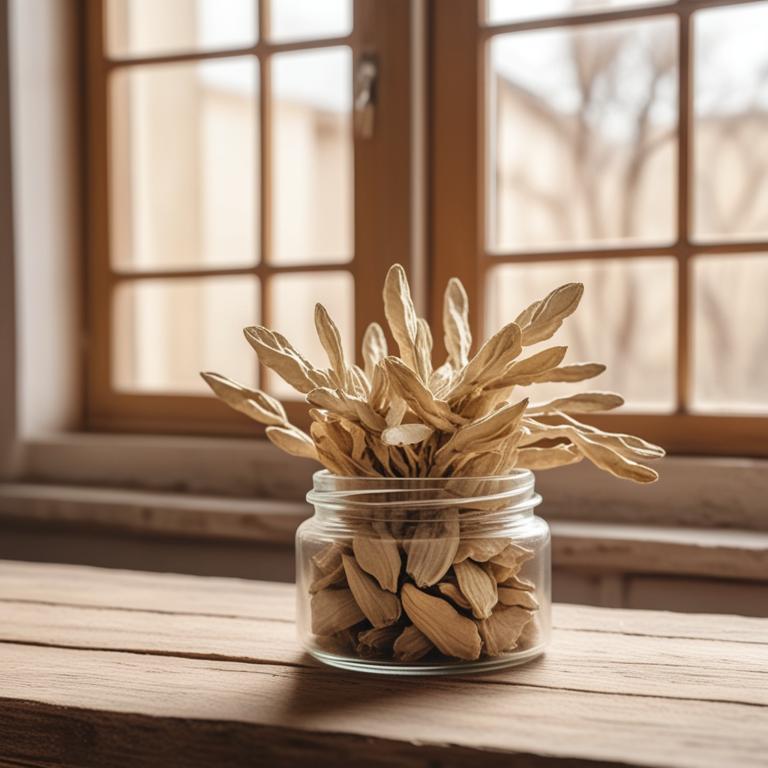
Herbs can be a helpful addition to your diet if you're managing osteoporosis.
One herb that's been studied for its potential benefits is Astragalus membranaceus. This herb contains compounds that may help strengthen bones by stimulating the growth of new bone tissue and improving calcium absorption. Another herb, Angelica sinensis, also known as dong quai, has been used in traditional Chinese medicine for centuries to support bone health. It's rich in antioxidants, which can help protect bones from damage caused by free radicals.
Ginger, or Zingiber officinale, is another herb that may be beneficial for osteoporosis. It contains compounds called gingerols, which have anti-inflammatory properties that may help reduce bone loss and improve bone density. Ginkgo biloba is an herb that may help improve blood flow to the bones, which can be beneficial for people with osteoporosis. When bones receive adequate blood flow, they're able to repair and rebuild themselves more effectively. Finally, Panax ginseng is an herb that may help reduce inflammation and improve bone density.
It contains compounds called ginsenosides, which have been shown to stimulate the growth of new bone tissue and improve calcium absorption.
What herbal supplements are generally used to manage osteoporosis?

Herbal preparations can be a helpful addition to your osteoporosis treatment plan.
A decoction, which is made by boiling herbs in water, can be effective in reducing inflammation and improving bone density. For example, a decoction of ginseng and licorice root can help to strengthen bones and reduce the risk of fractures. Herbal capsules, on the other hand, are a convenient and easy-to-use option. They are often made by filling gelatin or vegetarian capsules with a concentrated herbal extract. Capsules of calcium-rich herbs like alfalfa and dandelion root can help to supplement your calcium intake and support bone health. Tinctures are liquid herbal extracts that can be taken sublingually or added to water.
They are often more concentrated than teas or infusions and can be more easily absorbed by the body. A tincture of horsetail, for instance, is rich in silica, which is an essential mineral for maintaining healthy bones. An infusion is similar to a tea, but it is made by steeping herbs in hot water for a longer period of time. Infusions of herbs like nettle and oat straw can help to reduce inflammation and improve bone density. Finally, drinking herbal teas, which are made by steeping herbs in hot water, can be a soothing and delicious way to support bone health. Teas of herbs like peppermint and ginger can help to reduce inflammation and improve digestion, which is essential for maintaining healthy bones. It's essential to note that herbal preparations should not be used as a replacement for conventional medical treatment, but rather as a complementary therapy.
Always consult with a healthcare professional before starting any new herbal treatment, especially if you are taking medications or have any underlying health conditions.
Additional Resources:
Which herbs should be avoided by individuals with osteoporosis?
If you have osteoporosis, it's best to be careful with certain herbs.
Glycyrrhiza glabra, also known as licorice root, can cause a problem because it can raise blood pressure and worsen conditions like osteoporosis. High blood pressure can put extra strain on your bones, making them weaker. Equisetum arvense, or horsetail, is another herb to be aware of. It's rich in silica, which is good for healthy bones, but horsetail also contains a compound called thiaminase that can interfere with bone-building processes. This could be a problem for people with osteoporosis, who need to support their bone health. Rauvolfia serpentina, also known as snakeroot, contains a compound that can lower blood pressure.
While this might sound good, people with osteoporosis often have low blood pressure, and this herb could make it drop even further. Low blood pressure can cause dizziness and even falls, which can be a serious risk for people with weakened bones. Valeriana officinalis, or valerian root, is often used as a natural sedative. However, it can also affect bone-building processes in the body, which could be a problem for people with osteoporosis. Additionally, valerian root can interact with other medications, including those used to treat osteoporosis. Vitex agnus-castus, or chasteberry, is sometimes used to treat conditions like menopause. However, it can also affect hormone levels, which can have an impact on bone health.
In people with osteoporosis, this could lead to a loss of bone density, making their bones even weaker.
FAQ
Are there any specific herbs that can prevent osteoporosis?
Some herbs may help prevent osteoporosis.
For example, ginseng and ashwagandha are known to strengthen bones and improve bone density. They contain compounds that promote collagen production and bone growth. Additionally, herbs like sage and rosemary are rich in calcium and vitamin K, which are essential for bone health.
These herbs can be consumed as supplements or added to meals.
Is it safe to use herbal remedies for osteoporosis during pregnancy?
Using herbal remedies for osteoporosis during pregnancy is not recommended.
Some herbs can stimulate the uterus and cause early labor. Others might interact with pregnancy hormones or affect bone growth.
These risks are not fully understood, so it's best to avoid them until after pregnancy.
Are there any herbs that can reduce the frequency of osteoporosis?
Some herbs, like boron and isoflavones found in soybeans, may help reduce the risk of osteoporosis by promoting bone density.
Vitamin K in leafy greens like spinach and kale also plays a role in bone health.
These herbs and vitamins work together to keep bones strong and healthy.
Related Articles
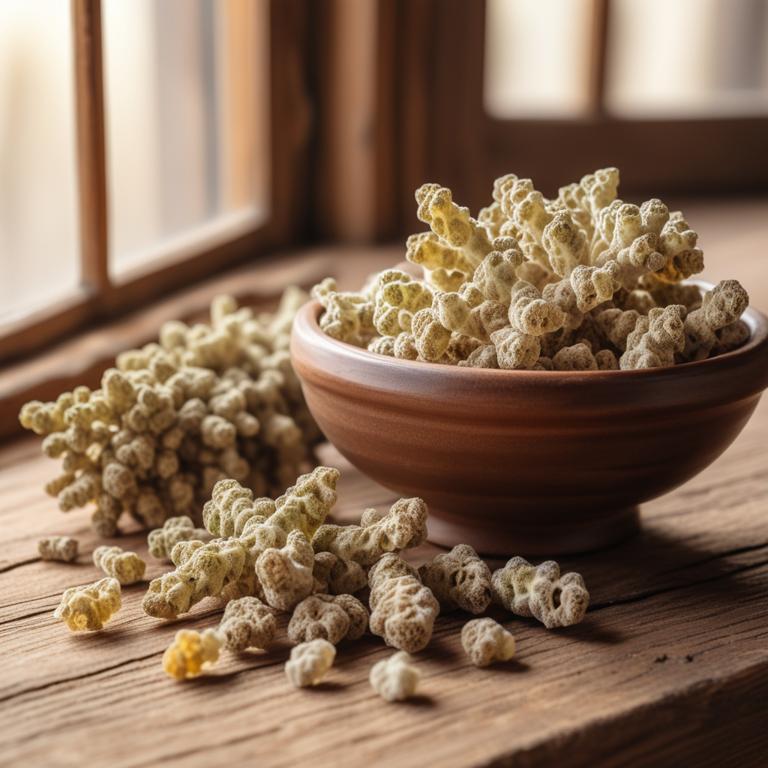
The Osteoarthritis Guide: Causes, Medicinal Herbs, and Herbal Preparations for a Healthier You
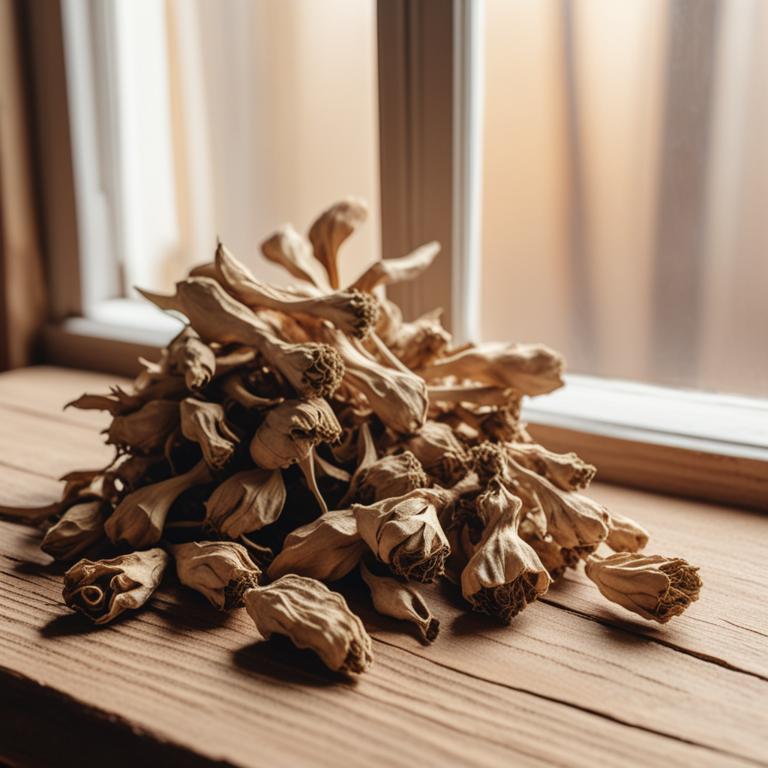
Herbal Solutions for Reducing Joint Stiffness and Improving Mobility
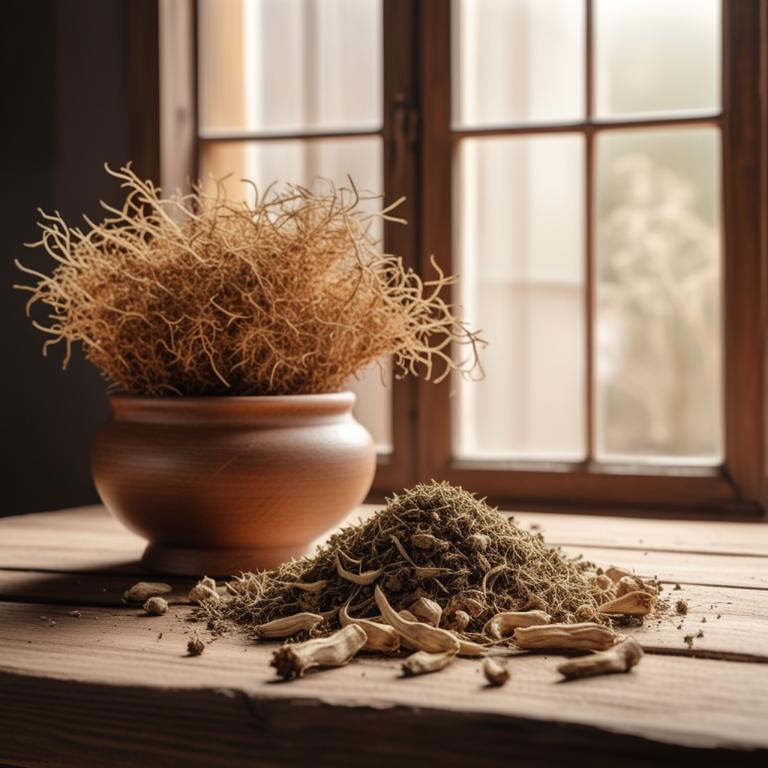
Frozen Shoulder: Causes, Symptoms, and Natural Remedies with Medicinal Herbs
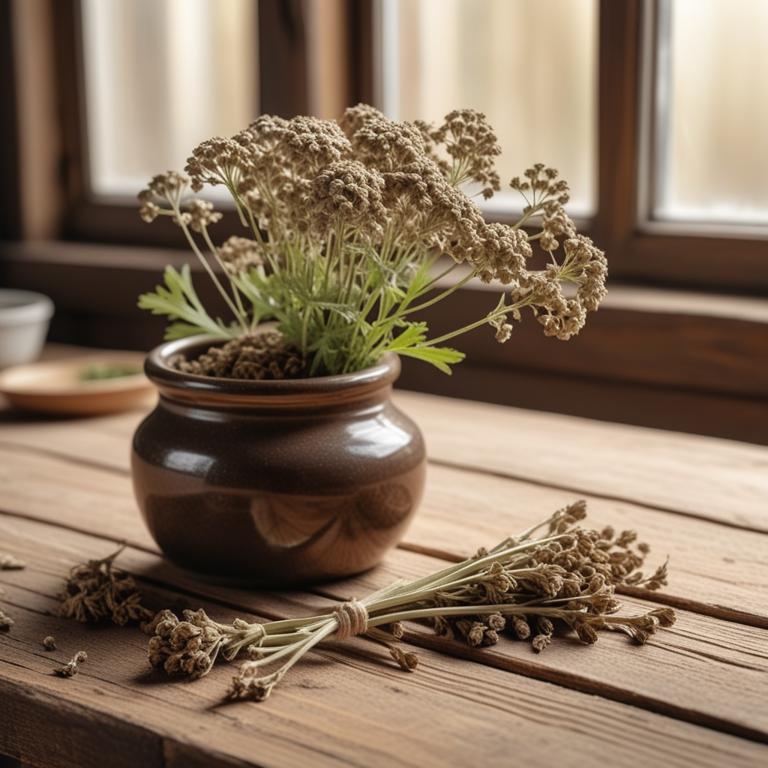
Understanding and Treating Leg Cramps with Medicinal Herbs
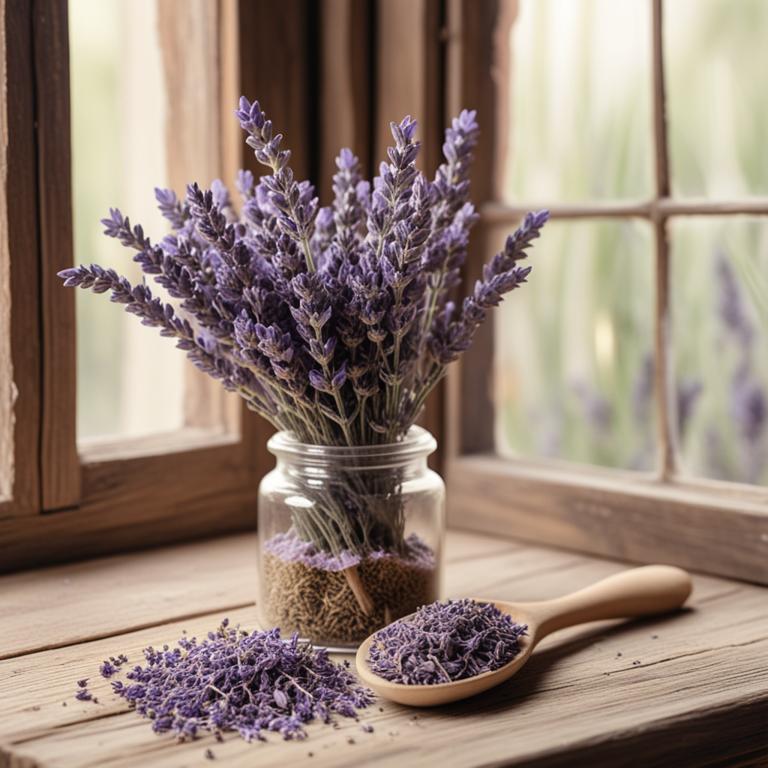
Jaw Clenching and Bruxism: Causes, Medicinal Herbs, and Herbal Preparations
